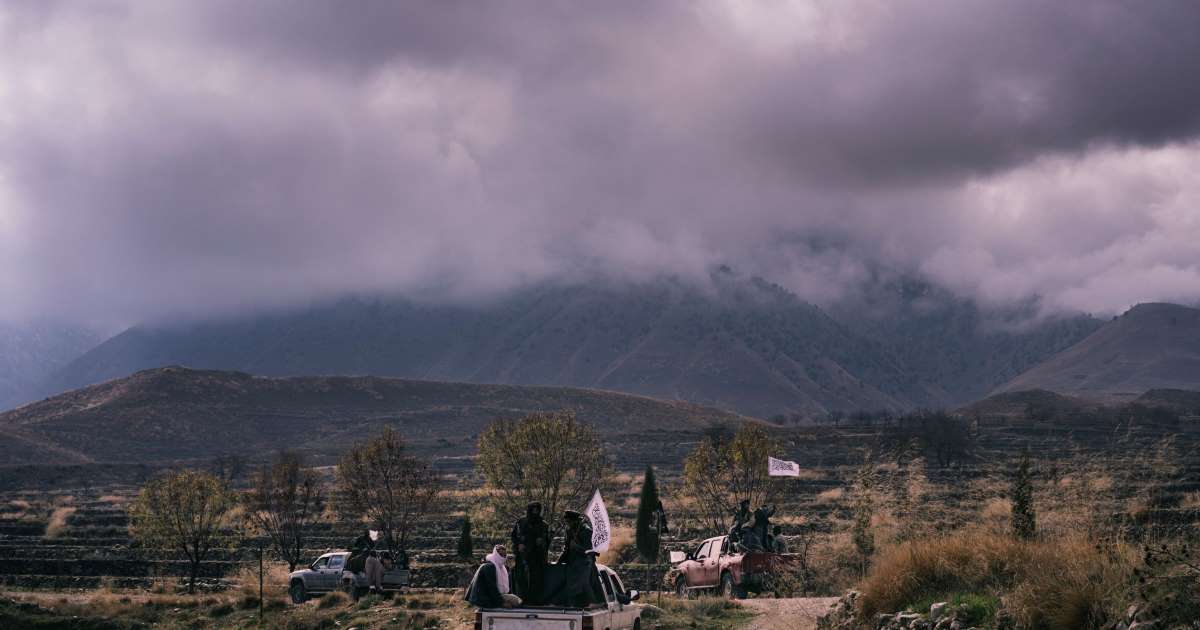Afghan officials at some of the highest echelons of power in Kabul are reviving claims that the Taliban and the Islamic State in Afghanistan are aiding each other in carrying out attacks and sharing training pipelines — boosting a long-held theory that threatens progress toward formal peace talks.
This month, Afghan President Ashraf Ghani linked a brutal attack on a maternity ward in the capital with a rise in Taliban violence elsewhere in the country. And Ghani’s national security adviser blamed the massacre on Taliban “sponsors” who “have now subcontracted their terror to other entities.”
The evidence for such links is flimsy and has been repeatedly disputed by U.S. officials and Taliban leaders. But Afghan leaders’ persistence in making the claim highlights the depth of mistrust between the government and Taliban at a critical point in the peace process. The accusations touch on one of the few public conditions in the U.S.-Taliban peace deal: that the Taliban prevent groups like the Islamic State from operating on Afghan soil.
No group publicly claimed responsibility for the maternity ward attack, but U.S. officials issued an emphatic, public rejection of the Afghan government claims. U.S. special representative Zalmay Khalilzad tweeted the United States blamed the Islamic State for the bloodshed. The U.S. military command in Kabul’s “initial assessment” also implicated the Islamic State, according to spokesman, Col. Sonny Leggett.
The Taliban has denied any links to the Islamic State in Afghanistan, citing ideological differences and a long history of battlefield clashes.
“They call us as infidels and polytheists, God forbid. And we consider them … expelled from Islam,” Zabiullah Mujahid, a Taliban spokesman, said in an interview. Mujahid also pointed to years of intense fighting between the Islamic State and the Taliban. “We have suffered heavily, we lost many Mujahideen,” he said.
Taliban fighters played a key role in a series of battlefield victories against the Islamic State in eastern Afghanistan last year. U.S. air power backing Afghan ground troops led the offensive, but U.S. officials described the role of Taliban ground forces — with whom they did not directly coordinate — as critical at that time.
The acting director of Afghanistan’s main intelligence agency reinforced the government’s claims after the maternity ward attack, saying that the Taliban is working with the Islamic State and that “relations between the Taliban and other terrorist groups have expanded.” Speaking at a news conference, Ahmad Zia Saraj said his agency had fingerprints of captured Islamic State fighters that match those of suspected Taliban militants, suggesting links between the two factions.
“There isn’t any deliberate, active link,” between the Taliban and the Islamic State, said Omar Zakhelwal, a former finance minister from 2009 to 2015 and Afghan ambassador to Pakistan from 2015 to 2018. Zakhelwal conceded that some disgruntled Taliban fighters may have switched allegiances and joined the Islamic State or vice versa. But he said that does not prove cooperation between the two groups.
Taliban fighters and the Islamic State may also draw upon the same training pipelines when recruiting suicide bombers or gunmen for high-profile attacks, according to analysts. On Afghanistan’s complex battlefield, there could be instances of low-level cooperation between local commanders “when they view each other as fellow travelers or make nonaggression pacts of one form or another,” said Johnny Walsh, a senior Afghanistan expert at the United States Institute for Peace.
But, Walsh said, overall “the Taliban and ISIS-K are distinct entities and have spent most of the last five years at war with each other on a large scale.”
The Islamic State promotes a global jihad, while the Taliban promotes the use of violence only inside Afghanistan.
Increasingly, senior Afghan officials are citing direct Taliban-Islamic State cooperation when defending arguments against pursing peace talks with the Taliban.
When Afghan National Security Adviser Hamdullah Mohib accused the Taliban of “subcontracting” terrorist attacks to other groups, he added: “There seems little point in continuing to engage Taliban in ‘peace talks’.”
Another senior Afghan official said of the Taliban and Islamic State, “they both carry out terrorist attacks so they’re all just terrorists.” But he said he supported peace talks because the Afghan people are tired of war. “We should talk, it doesn’t mean we need to trust,” he said. The official spoke on the condition of anonymity because he was not authorized to brief the media.
Afghan government and Taliban officials were meeting in Kabul this week to discuss a prisoner swap intended to pave the way for direct peace talks between the two sides. Those direct talks have been delayed for months but appear poised to move in the right direction: A cease-fire declared to mark the holiday at the end of the holy month of Ramadan has been unofficially extended, and Afghanistan is enjoying a lull in violence after weeks of intense bloodshed.
Once peace talks begin between the Taliban and the Afghan government, many expect months if not years of work ahead. The two sides have been at war for decades. And violence in Afghanistan has not only divided the country but has also torn apart communities and families.
Andrew Watkins, a senior Afghanistan analyst for International Crisis Group, said theories linking the Islamic State and the Taliban reflect deep distrust on both sides despite signs of progress.
“Some of this ‘the Taliban and Daesh are just all terrorists’ is just the knee-jerk reaction to how horrifying it is that your enemy might become you next-door neighbor,” he said.













